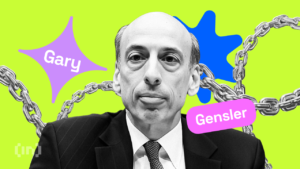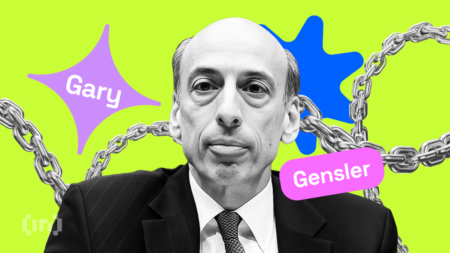On Wednesday, Mike Novogratz, CEO of Galaxy Digital, joined Yahoo Finance’s Julie Hyman and Madison Mills on “Catalysts” to discuss Bitcoin’s rally and the potential impact of President-elect Donald Trump’s Cabinet nominations on digital assets. As Bitcoin surged past $94,000, Novogratz shared his thoughts on regulatory shifts, Bitcoin’s future trajectory, and its role in the global economy.
Novogratz emphasized the stark contrast between the upcoming Trump administration and the previous regulatory environment under Elizabeth Warren and SEC Chair Gary Gensler. He described the current nominees and advisers surrounding Trump as highly supportive of digital assets, blockchain, and Bitcoin. He said that this “pro-crypto attitude” could bring significant policy changes, including ending what he called the “tax on crypto” caused by operational and compliance burdens.
He noted that key figures like Howard Lutnick, recently named Commerce Secretary, and others in Trump’s circle, including venture capitalists and entrepreneurs, are advocates for blockchain technology and digital assets. This, Novogratz said, creates a new energy and optimism for the crypto space.
Novogratz addressed speculation about the U.S. government establishing a strategic Bitcoin reserve. While he found the idea of buying one million Bitcoins to back the U.S. economy impractical, he supported the concept of signaling global leadership in Bitcoin adoption. He pointed out that the U.S. dollar does not need Bitcoin backing, given the nation’s strong economic and military positioning. However, taking a stance as a leader in the Bitcoin space could be a smart strategic move.
He also suggested that pledging not to sell the Bitcoin the U.S. government already owns would send a powerful message about America’s commitment to the digital asset ecosystem.
Novogratz highlighted the recent introduction of options trading on spot Bitcoin ETFs as a significant development. He explained that this enables retail investors to engage with Bitcoin in new ways, particularly through short-dated options. While he acknowledged that this will inevitably increase Bitcoin’s already high volatility, he also saw it as a positive step toward greater market engagement.
He reflected on the nature of leverage in the crypto space, noting that many investors are drawn to leveraged trades despite the inherent risks. He cautioned that such one-directional market movements often result in corrections, or “washouts,” which could occur if the market becomes overheated.
When asked about Bitcoin’s price potential, Novogratz noted that markets are drawn to “big numbers,” and $100,000 is an achievable target. He believes Bitcoin could accelerate past this milestone if sovereign wealth funds, particularly from regions like the Middle East, increase their holdings. Novogratz also mentioned that Galaxy Digital has observed significant buying interest at current price levels, despite some large-scale selling, possibly by miners or other entities.
He emphasized Bitcoin’s unique position as the first truly global asset, with participation from individuals and entities in nearly every country, and believes that this global demand underscores Bitcoin’s resilience and increasing relevance in the financial ecosystem.
Novogratz also discussed Bitcoin’s role as a “report card” on global fiscal policy rather than a direct competitor to the U.S. dollar. He thinks that, even at $100,000 per Bitcoin, the market remains relatively small compared to traditional assets like gold. While Bitcoin represents fiscal expansion and innovation globally, Novogratz believes it is far from challenging the dominance of the dollar or U.S. Treasury bonds.
Galaxy Digital’s decision to pivot some Bitcoin mining operations toward AI-focused data centers was another topic of discussion. Novogratz explained that AI’s rising demand for energy has made investments in hyperscale data centers more attractive than Bitcoin mining in some cases. However, he acknowledged that as Bitcoin prices rise, mining profitability improves, potentially leading to a balance between these competing interests.
Featured Image via Pixabay
Read the full article here









